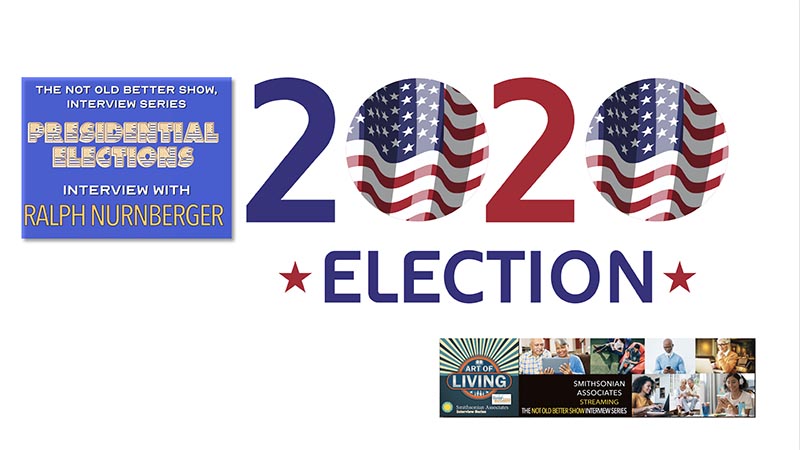Ralph Nurnberger – Presidential Election
The Not Old Better Show, Smithsonian Associates Interview Series
Welcome to The Not Old Better Show. I’m Paul Vogelzang, and this is episode #483.
As part of our Smithsonian Associates Art of Living Series, our guest today is historian Ralph Nurnberger. This will be an excellent interview on a subject very much on our minds: Presidential Elections, as well as the Veeps they choose and why. Ralph Nurnberger will be presenting 3 different Smithsonian Associates events, all of which we’ll have links to in our show notes.
The United States has held 57 presidential elections since the first in 1789. Voters are invariably informed that the current one is “the most important ever,” but some elections have proven more significant and historic than others. These led to landmark political changes, including a Constitutional amendment, the dissolution of major political parties, or changes in national policies—including those that altered civil rights for decades to come. Several elections had contested results in which the winner remained in doubt weeks after the ballots were counted. As the 2020 presidential election approaches, historian Ralph Nurnberger looks back on controversial elections under myriad election rules of the day involving electors who cast two indistinguishable ballots. It took 36 votes in the House of Representatives before a winner was declared the winner.
We’re talking today about Vice Presidents, too. Over the years, presidential nominees’ choices of a running mate have reflected everything from an afterthought to a carefully calculated balancing act. While the vice president’s duties are spelled out in the Constitution, how they are selected and deployed in the campaign and office seems to change with every election.
This is fascinating stuff, and right on time for our 2020 Vote.
Join historian Ralph Nurnberger as he clarifies the official aspects of the position and explores the vice-presidential nominee’s importance to the overall election. The shifting criteria used to make the decision
For more information about Ralph Nurnberger’s upcoming Smithsonian Associates presentations, please click these two links:
https://smithsonianassociates.org/ticketing/tickets/presidential-elections-of-1800-and-1876



